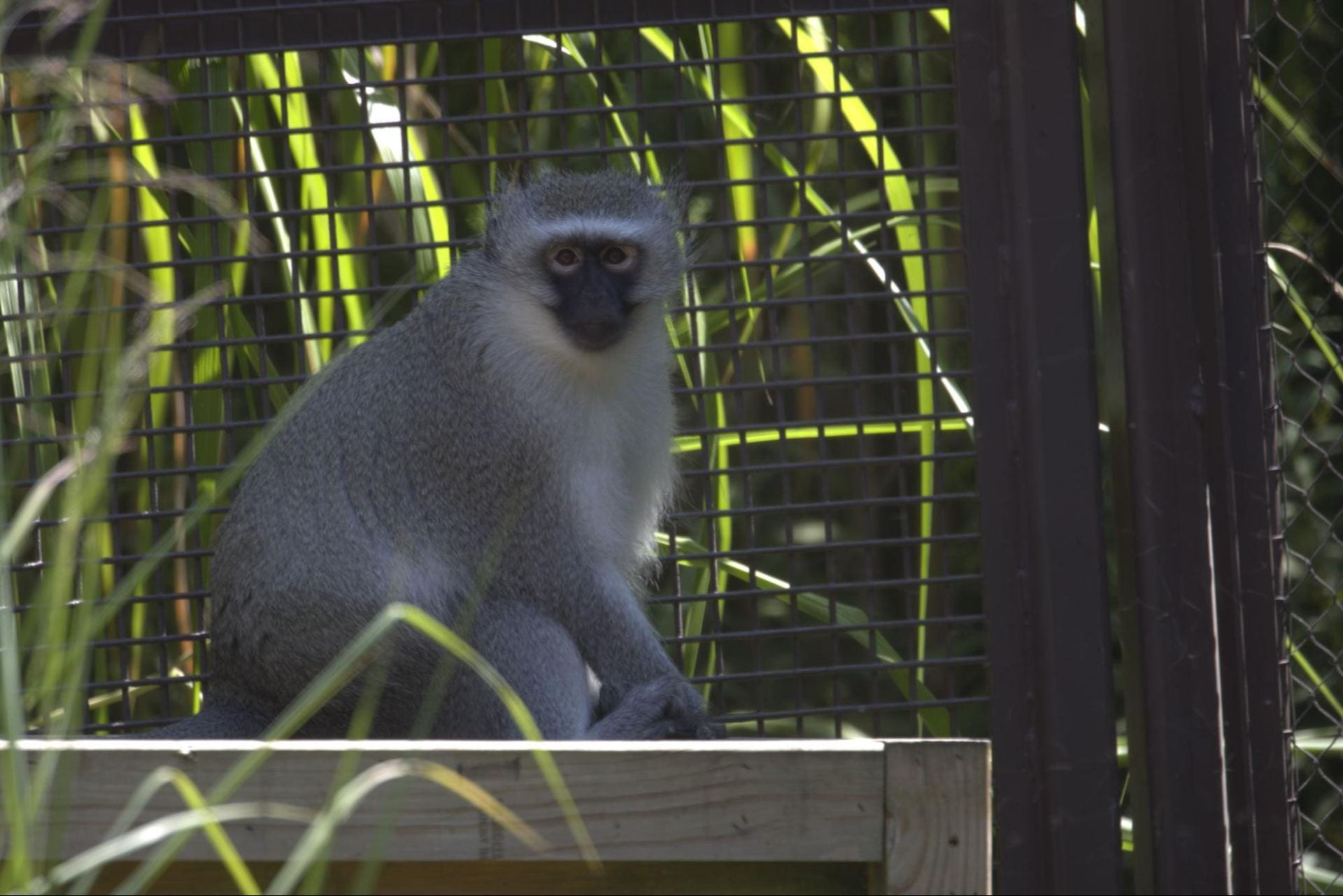
A vervet monkey in its habitat at the Columbus Zoo Sept. 2. Credit: Logan Nowlin | Lantern Reporter
An Ohio State Ph.D. candidate is getting into the monkey business and has taken a major step toward helping primates everywhere.
For the Love of Primates, a nonprofit organization founded and led by Tessa Cannon, a Ph.D. candidate in the Department of Anthropology, has purchased nearly 60 acres of land near Crooksville, Ohio, that will soon be home to the largest primate sanctuary in Central Ohio.
“There are hardly any sanctuaries in the U.S., and they are mostly all full and functioning at capacity,” Cannon said. “There are all of these primates that need to be retired from laboratory research and have no place to go.”
For the Love of Primates is in the process of creating designs for the sanctuary, working alongside design teams that have collaborated with Zoo Atlanta and The Gorilla Foundation in the past, Cannon said. The current designs accommodate between 80 to 100 primates and will occupy roughly 30 percent of the newly purchased land, leaving room for future expansion, she said.
Cannon said the organization plans to house mainly macaque and vervet monkeys that have been retired from lab research. Crooksville’s location is optimal for this kind of sanctuary, as it allows for proximity to the metropolitan Columbus area while remaining fairly secluded, Cannon said.
Currently, Cannon said there are less than 1,000 primates housed in sanctuaries within the United States, but over 100,000 primates in labs within the same borders. Most of these lab primates will end up being euthanized, she said.
Cannon said the nonprofit aims to not only provide a safe environment for these rescued primates, but also bring awareness to a problem of which many people are largely unaware.
“People do not realize how much primates are used in research,” Cannon said. “Pretty much any new drug, vaccine or pretty much any new medical advancement is required to be tested in primates before it can be tested in people. Things like the COVID-19 vaccine wouldn’t exist if we did not have primate testing.”
Due to the especially cold climate that emerges in winter months, Cannon said there are few primate sanctuaries in places like Ohio. She said For the Love of Primates hopes its sanctuary will be a leading example for more sanctuaries to be constructed in similar climates across the nation.
One of the few primate sanctuaries in Ohio is the American Primate Educational Sanctuary in Blacklick, Ohio. Owner Pam White said the shelter rescues primates that were once owned as domesticated pets and currently houses eight gibbon apes, a species considered critically endangered.
White said expanding her sanctuary has been difficult due to financial restrictions, and she has had to turn away potential rescues as a result.
“I have had several places ask me if I would take [primates] that were in labs, but they only give you so much money,” White said. “And when that money runs out, you are on your own.”
White said she hopes For the Love of Primates can house many of the primates she and other sanctuaries are presently unable to care for.
“I really do wish the best for them, especially for those animals,” White said.
When opening her sanctuary over two decades ago, White said her primary goal was to educate the upcoming generations about primates. For the Love of Primates has similar goals, Cannon said.
In addition to developing the sanctuary, Cannon said the organization is expanding their outreach programs to include free STEM and environmental education programs for K-8 children.
Such programs, which focus on primates’ evolutionary and environmental aspects, have been brought by the nonprofit to hundreds of children at local libraries and YMCA camps, Cannon said. Now, the sanctuary will give For the Love of Primates a home base out of which it can teach these programs, she said.
Cannon said she ultimately hopes For the Love of Primates opens people’s eyes to primates’ key societal contributions.
“Primates have a huge impact on human lives, and many people just don’t really know about it,” Cannon said.
Though an opening date for For the Love of Primates’ sanctuary is unannounced at the time of publication, more information about the organization can be found on its website.


